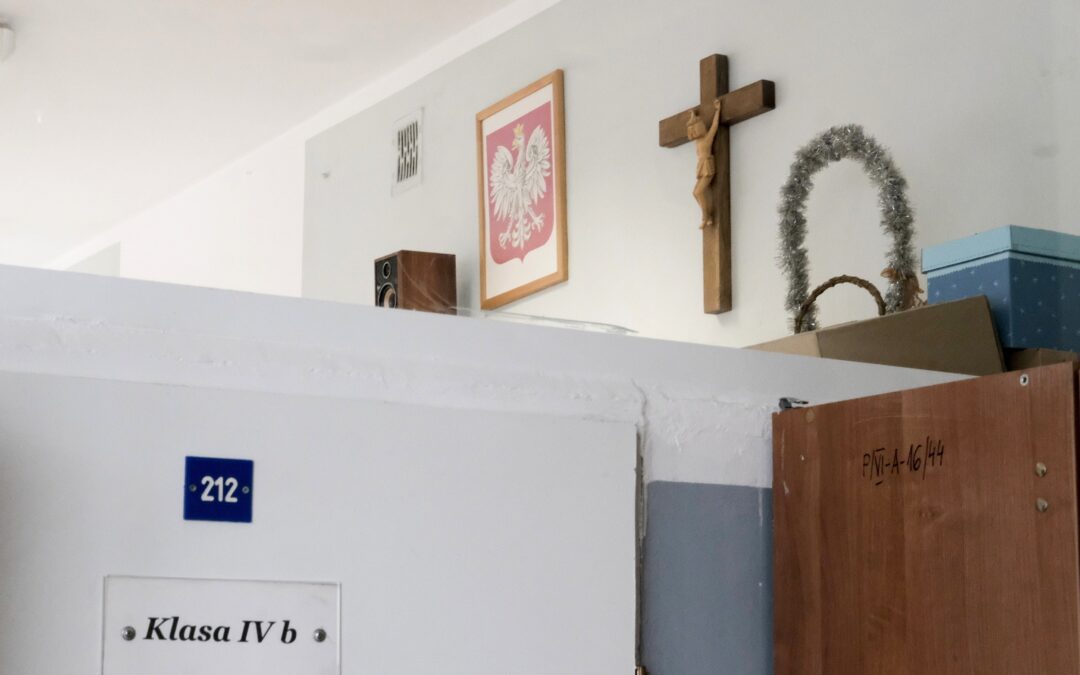
The Catholic church in Poland has criticised the government’s recent decision to remove school catechism lessons from the grade average received by students at the end of the academic year.
In March, education minister Barbara Nowacka fulfilled two of the promises she had outlined after the new government came to power in December by signing into force changes to rules on the assessment of children in public schools.
One was to abolish compulsory, graded homework for pupils in primary school, a measure that took force at the start of April.
The other was to remove grades for religion classes from the averages students receive at the end of each school year and when they graduate.
Though religion classes are hosted and funded by the public school system, their curriculums and teachers (often priests or nuns) are decided by the Catholic church.
The lessons are optional but are attended by the majority of children, although the figure has been falling in recent years.
In her justification for removing religion from grade averages, Nowacka argued that it should not be included because it is optional and therefore not taken by all students.
She removed ethics, another optional subject, from grade averages for the same reason.
“The purpose of the change is to provide students with equal opportunities in obtaining average grades,” wrote the ministry. The measure will go into force from the start of the new school year in September.
However, the Polish Episcopal Conference (KEP), the central organ of the Catholic church in Poland, has now criticised Nowacka’s decision as “unfair towards students attending religious classes”.
KEP’s Catholic education committee met on Tuesday to discuss the issue and today its secretary, Tomasz Kopiczko, issued a statement published by the church’s press agency, KAI.
He said that the committee’s members “express their opposition” to the ministry’s actions, which had “not taken into account the voices of thousands of teachers, educators and parents” who, during consultations on the changes, expressed opposition to them.
The statement also reiterated the church’s opposition to Nowacka’s further plans to halve the number of hours that Catholic catechism classes are taught in schools from two per week to one.
“Religious education brings many benefits,” wrote the committee. “It educates in faith and introduces values such as goodness, truth and beauty into the world. It teaches a sense of justice and sensitivity to human needs.”
“It also helps young people discover and understand the meaning of their own lives in the face of various civilisational and cultural challenges,” they added. “Therefore every effort should be made to ensure that there is room for religious and ethical education.”
In February, a survey by the Research Partner agency found that 36% of Poles want religion classes in their current form removed from schools entirely. Just under 25% favour maintaining the current status quo while 21% support the government’s idea of reducing teaching to one hour a week.
Across Poland as a whole, over 80% of pupils in schools and preschools attended religion classes in the 2021/22 school year.
However, attendance has been declining in recent years, in particular in large towns and cities.
In 2022, only 29% of high school students in Warsaw opted in for the lessons.
Two cities, Wrocław and Częstochowa, have asked to be released from their obligation to fund the subject.
